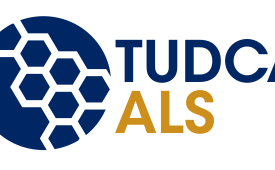
In collaboration with Julius Clinical, TRICALS will present the webinar: “Efficient Patient Identification in ALS Clinical Trials; Leveraging the Concept of Fast and Slow Progressors”. The webinar will take place on November 10, 2020 at 18:00 CET.
We are pleased to announce that this webinar will be presented by: Prof. Dr. Leonard van den Berg (Professor of Neurology and Chair of TRICALS) and Dr. Ruben van Eijk (Assistant Professor and Medical Statistician) from our TRICALS Centre at UMC Utrecht, the Netherlands.
Topics that will be covered, include:
- Prediction-based inclusion criteria
- Defining the concept of fast vs slow progressors
- Addressing disease heterogeneity and reduce variance
- Regulatory perspective (EMA) on prediction-based patient selection
Don’t miss this opportunity and register now by clicking the link: https://bit.ly/3oAnz2L. The webinar will be recorded, so even if you can’t make it, make sure to sign up to receive the replay!
Related news

Meet the centre - Torino ALS Center (University of Torino)
The TRICALS consortium currently consists of more than 40 centers across Europe. […]

Amylyx withdraws RELYVRIO/AMX0035 from U.S. and Canadian markets
Yesterday, the pharmaceutical company Amylyx announced that they are withdrawing the drug […]

Results of TUDCA-study: No effect of investigated compound
The TUDCA-ALS consortium has announced the first findings of the TUDCA study, […]

Amylyx: no effect after analyzing phase 3 study
The pharmaceutical company Amylyx announced the first results of the PHOENIX study. […]